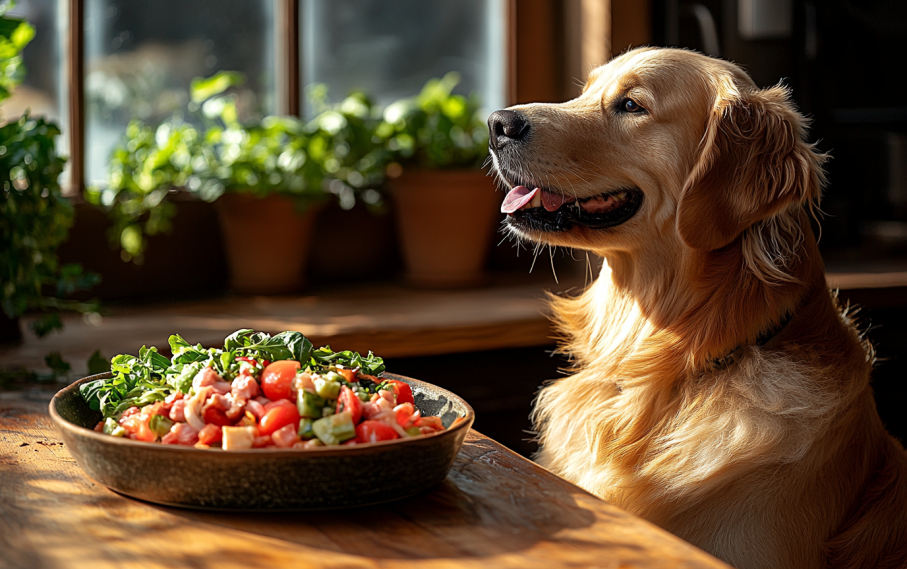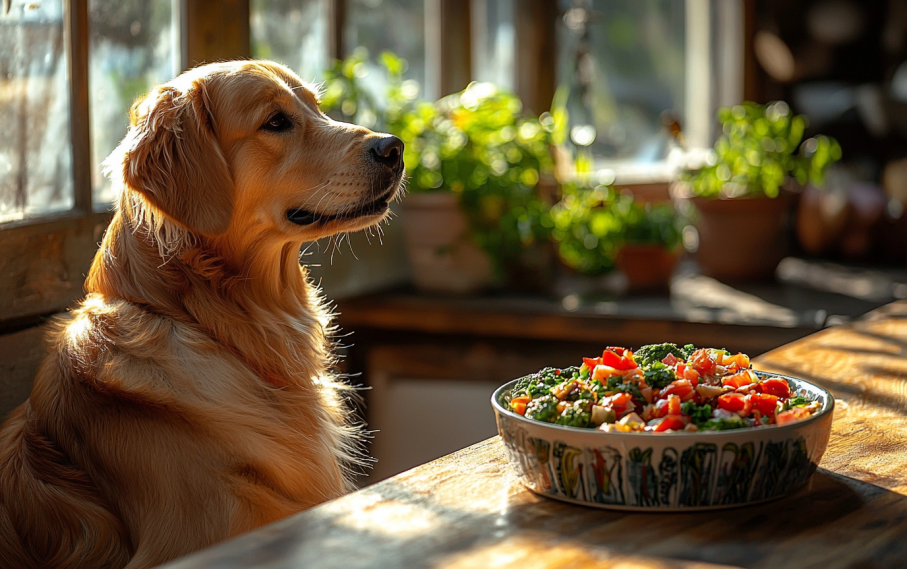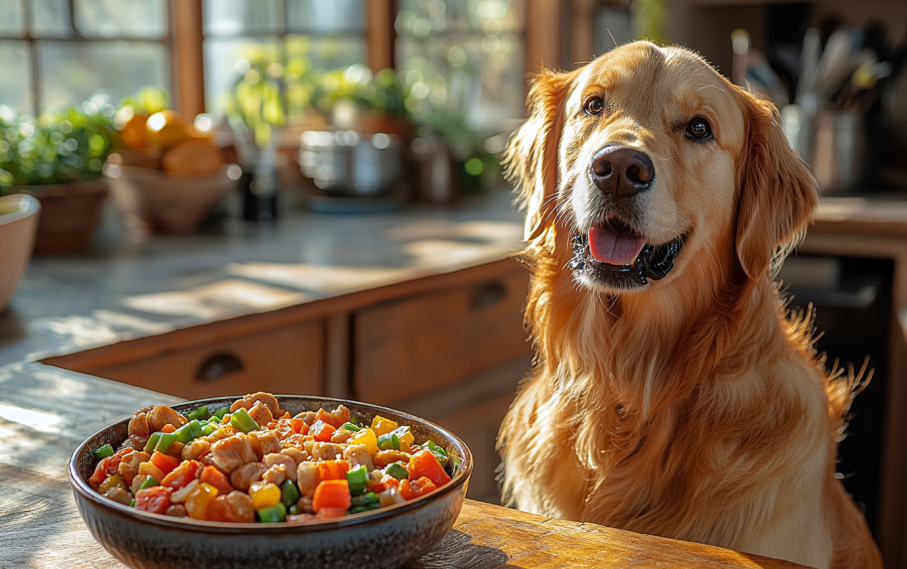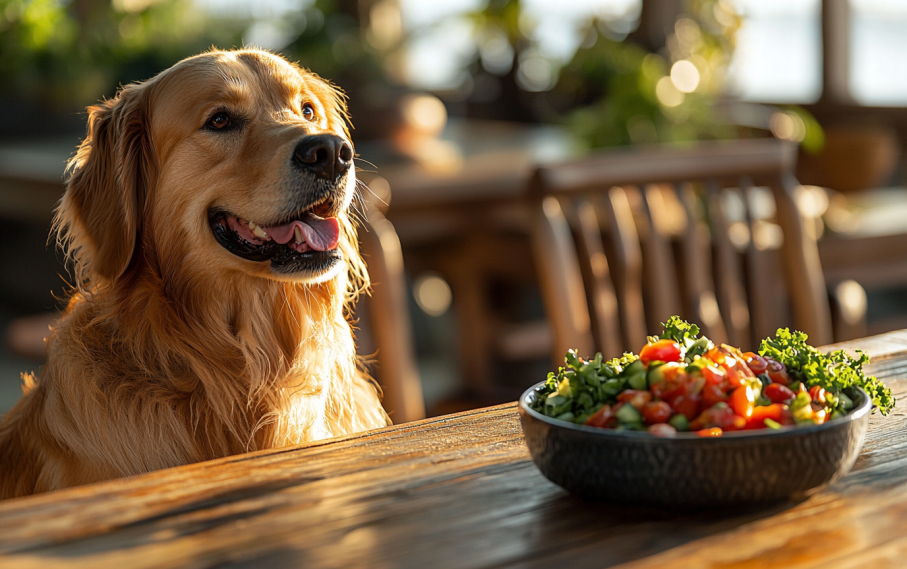Why Organic Dog Food Matters
As pet owners, we all want the best for our furry companions. One of the most important decisions we make for our pets is their diet. In recent years, the popularity of organic dog food has skyrocketed, and for good reason. Many pet owners are now recognizing the numerous benefits of feeding their dogs organic food, not just for the health of their pets but also for the environment.
But what exactly is organic dog food, and why should you consider it over conventional options? In this article, we’ll dive into the many benefits of organic dog food, how to choose the best one for your pet, and whether it’s worth the extra cost. By the end, you’ll be equipped with everything you need to make an informed choice about your dog’s diet.
What is Organic Dog Food?
Defining Organic Dog Food Standards
Organic dog food is made from ingredients that are grown or produced without the use of synthetic fertilizers, pesticides, genetically modified organisms (GMOs), hormones, or antibiotics. These ingredients are sourced from farms that prioritize natural growing methods and humane treatment of animals.
For a dog food to be certified as organic, it must meet strict standards set by organizations like the USDA (United States Department of Agriculture) or other regional certification bodies. These standards ensure that the food is not only free of harmful chemicals but also environmentally sustainable and ethically produced.
Difference Between Organic and Conventional Dog Food
Conventional dog food may contain ingredients that are exposed to chemicals, synthetic fertilizers, and antibiotics. These additives can impact the long-term health of your dog, contributing to various issues like allergies, digestive problems, and even obesity.
In contrast, organic dog food is free from these potentially harmful ingredients. It contains clean, nutrient-dense foods that help your dog thrive without the risk of ingesting toxins. Organic formulas typically contain higher-quality protein sources, healthier fats, and organic grains, which can lead to better overall health for your pet.
Top Benefits of Organic Dog Food

Switching to organic dog food has a variety of positive impacts on your dog’s well-being. Below are the key benefits that make organic dog food the superior choice.
1. Better Nutritional Value
One of the most significant advantages of organic dog food is its higher nutritional quality. Organic ingredients are often richer in vitamins, minerals, and antioxidants compared to conventionally farmed produce. Because the ingredients are grown naturally without synthetic fertilizers, they retain more of their nutritional value.
This increased nutritional profile translates to better overall health for your dog. It can strengthen their immune system, support healthy coat and skin, and provide more sustainable energy levels. Dogs fed an organic diet often have shinier coats, brighter eyes, and increased vitality.
2. Fewer Allergens and Irritants
Many conventional dog foods contain artificial preservatives, dyes, and additives that can cause allergic reactions in sensitive dogs. Ingredients like corn, soy, and wheat, commonly found in commercial dog foods, can trigger skin irritations, digestive issues, and even behavioral problems.
Organic dog food typically avoids these problematic ingredients, focusing instead on whole, clean foods that are easier for dogs to digest. Organic food is less likely to contain common allergens, reducing the risk of allergic reactions or intolerance. If your dog suffers from itchy skin, rashes, or frequent stomach upset, switching to an organic diet may provide relief.
3. No Harmful Additives or Chemicals
Many conventional dog foods contain preservatives, artificial flavors, and chemicals to prolong shelf life or enhance taste. Over time, these additives can build up in your dog’s system and potentially contribute to long-term health problems.
Organic dog food is free from artificial preservatives and harmful chemicals. By feeding your pet organic food, you’re reducing their exposure to these toxins, which can help them live a healthier, longer life.
How to Choose the Right Organic Dog Food
Not all organic dog foods are created equal. Here are some essential tips to help you make the best decision for your pet.
Understanding Ingredients
When choosing organic dog food, always read the label carefully. Look for whole, recognizable ingredients such as organic chicken, beef, vegetables, and fruits. Avoid foods that contain fillers like corn, soy, or by-products, even if they are labeled organic. These fillers provide little nutritional value and can contribute to weight gain or digestive issues.
The fewer ingredients, the better. A simple ingredient list with high-quality proteins and whole foods is typically a sign of a superior product. Ingredients should be sourced from organic farms and free of artificial preservatives, flavors, or colors.
Choosing the Right Formula for Your Dog’s Needs
Every dog is unique, and their dietary needs will vary based on factors such as age, breed, size, and activity level. Look for an organic dog food that caters specifically to your dog’s life stage and any specific health concerns they may have.
- Puppies need a formula that’s rich in protein and fat to support their rapid growth and development.
- Senior dogs may benefit from a formula that contains joint-supporting ingredients like glucosamine and chondroitin.
- Active breeds require more calories and protein than less active breeds to fuel their energy levels.
Consult your veterinarian for specific recommendations based on your dog’s health profile.
Common Certifications to Look For
When selecting organic dog food, it’s essential to verify the certification on the label. Look for seals such as:
- USDA Organic
- Certified Organic by Oregon Tilth
- Non-GMO Project Verified
These certifications ensure the food meets organic standards and is free from harmful chemicals, additives, or GMOs.
READ ALSO: Best Wet Dog Food: Top Picks for All Dog Breeds and Ages
Top Organic Dog Food Brands in 2024

With so many options on the market, it can be overwhelming to choose the best organic dog food. To help, here are some top-rated organic dog food brands known for their high-quality ingredients and commitment to pet health:
- The Honest Kitchen
- Human-grade ingredients with organic produce.
- Grain-free and whole grain options available.
- Dehydrated for easy storage and preparation.
- Castor & Pollux Organix
- USDA-certified organic.
- Uses organic chicken, brown rice, and a variety of vegetables.
- No artificial preservatives, flavors, or colors.
- Newman’s Own Organics
- Organic beef, chicken, and other protein sources.
- Simple, limited-ingredient formulas.
- Profits go to charity.
- Tender & True Organic Dog Food
- Certified USDA organic with cage-free poultry and wild-caught fish.
- Grain-free and whole grain formulas available.
- Responsibly sourced ingredients.
- Open Farm Organic Dog Food
- Humanely raised, organic ingredients.
- High ethical and environmental standards.
- Traceable ingredients for full transparency.
Transitioning Your Dog to Organic Food
Tips for a Smooth Transition
Switching your dog to organic food should be done gradually to avoid digestive upset. Start by mixing a small amount of the new organic food with your dog’s current food, increasing the proportion over 7-10 days. By the end of this period, your dog should be eating 100% organic food.
Watch for any signs of digestive discomfort, such as vomiting, diarrhea, or lethargy. If your dog experiences any issues, slow down the transition process or consult your veterinarian.
Potential Side Effects and How to Handle Them
While most dogs transition smoothly to organic food, some may experience minor side effects such as gas, loose stools, or decreased energy as their body adjusts to the new diet. These side effects are typically temporary. However, if symptoms persist beyond a week or worsen, it’s essential to consult your vet to rule out any underlying issues.
Is Organic Dog Food Worth the Price?
Cost vs. Value
Organic dog food often comes with a higher price tag compared to conventional dog food. However, when considering the long-term health benefits, many pet owners find the investment worthwhile. Feeding your dog organic food can lead to fewer health issues down the road, potentially saving you money on vet bills and medications.
Additionally, organic dog food is often more nutrient-dense, meaning your dog may require less food to meet their nutritional needs.
How to Save on Organic Dog Food
If the price of organic dog food is a concern, there are ways to save without compromising on quality. Consider buying in bulk, subscribing to delivery services for discounts, or preparing homemade organic meals for your dog (we’ll cover that next!).
Homemade Organic Dog Food: A DIY Guide

If you’re willing to put in a little extra effort, making your own organic dog food can be a rewarding and cost-effective way to ensure your dog is eating the best. Here’s a simple recipe to get started:
Ingredients:
- 2 pounds of organic, free-range chicken (ground or diced)
- 1 cup of organic brown rice
- 1 cup of organic carrots (chopped)
- 1 cup of organic spinach (chopped)
- 1 tablespoon of organic olive oil
- 2 cups of water or low-sodium chicken broth
Directions:
- Cook the brown rice in water or broth until fully softened.
- In a separate pan, cook the chicken thoroughly.
- Add the carrots and spinach to the pan, cooking until softened.
- Mix the cooked chicken and vegetables with the rice.
- Stir in the olive oil for healthy fats.
- Let cool and serve, or refrigerate in portions for up to 5 days.
Be sure to consult your vet before switching to a homemade diet to ensure it meets all of your dog’s nutritional needs.
Conclusion: Making the Best Choice for Your Pet
When it comes to your dog’s health and well-being, the food you choose plays a significant role. Organic dog food offers numerous benefits, from better nutritional value to reduced exposure to harmful chemicals and allergens. While it may come with a higher price tag, the long-term health benefits and improved quality of life for your pet make it an investment worth considering.
By choosing the right organic dog food or even making your own, you’re giving your dog the best chance at a healthy, happy life. Remember, every dog is different, so it’s essential to consult your vet and monitor how your dog responds to the change. With organic food, you’re not just feeding your dog — you’re nourishing them for the long run.





